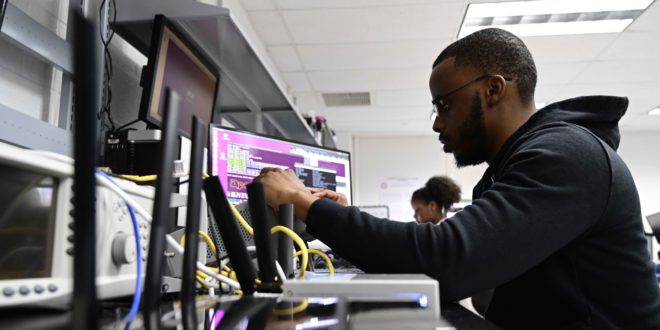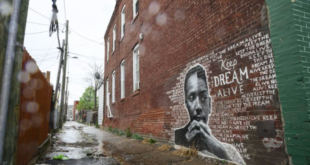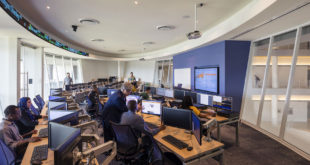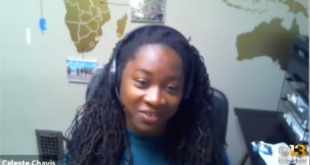Research to Focus on Privacy and Security of ‘Smart Things’ in the Home
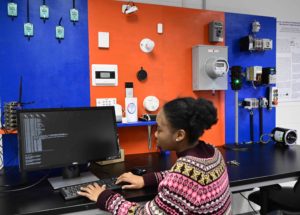 Morgan State University has been selected to join a team of seven academic institutions that will work together on a national research project to increase the security and privacy of high-tech products used in smart homes. The five-year program to develop trustworthy devices and systems in the home is funded by the National Science Foundation (NSF) through the Secure and Trustworthy Cyberspace Frontiers (SaTC Frontiers), a cross-cutting program to address fundamental scientific challenges related to privacy and cybersecurity.
Morgan State University has been selected to join a team of seven academic institutions that will work together on a national research project to increase the security and privacy of high-tech products used in smart homes. The five-year program to develop trustworthy devices and systems in the home is funded by the National Science Foundation (NSF) through the Secure and Trustworthy Cyberspace Frontiers (SaTC Frontiers), a cross-cutting program to address fundamental scientific challenges related to privacy and cybersecurity.
The project—Security and Privacy in the Lifecycle of IoT for Consumer Environments (SPLICE)—comes as households expand their reliance on smart products ranging from refrigerators to baby monitors. These devices can share information with each other as well as communicate with services across the internet.
SPLICE includes teams from Dartmouth College, the University of Illinois at Urbana-Champaign, Johns Hopkins University, the University of Maryland, the University of Michigan, Tufts University and Morgan. Dartmouth, who serves as the lead institution for the $10 million project award, organized the program team and will coordinate its research and educational activities.
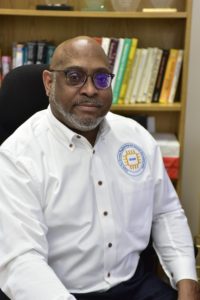 The principal investigator for Morgan is Kevin T. Kornegay, Ph.D. and the co-principal investigator is Michel A. Kornegay, D.Eng., both from the Clarence M. Mitchell, Jr. School of Engineering.
The principal investigator for Morgan is Kevin T. Kornegay, Ph.D. and the co-principal investigator is Michel A. Kornegay, D.Eng., both from the Clarence M. Mitchell, Jr. School of Engineering.
“The threats that the multitude of IoT devices pose regarding the security and privacy of the smart home environment is paramount and the research that we will conduct addresses security and privacy challenges throughout IoT device life cycle,” said Dr. Kornegay, director of Morgan’s Cybersecurity Assurance and Policy (CAP) Center. “The launch of this project comes at a crucial period in technological advancement and will provide opportunities for our faculty, undergraduate, and graduate students to collaborate as technical peers on inclusive and multidisciplinary, multi-university research teams.”
The program will develop technology and design principles related to smart homes. Breakthrough solutions envisioned for the program include:
- The first-ever toolkit to discover, identify, and locate cooperative and non-cooperative smart devices within a home’s wireless network – allowing residents to have a complete understanding of their home’s technological environment;
- Tools that move away from the failed “notice and consent” model of privacy management – shifting the privacy burden away from end users, who are ill-equipped to manage an increase in the number of devices and decisions;
- Identification of privacy issues in smart homes that must be addressed to advance consumer trust – informing the development of best-practice principles for smart homes.
The shift toward smart devices and systems in residences—such as houses, apartments, hotels, and assisted-living facilities—offers benefits that include increased energy efficiency and personalized services. Through faulty configuration or poor design, however, these items can also create unsafe conditions and increase risk of harm to people and property.
Since many homes are complex environments in which residents, landlords, and guests have different privacy needs, researchers will consider the interests of all property owners and users.
“Cybersecurity is one of the most significant economic and national security challenges facing our nation today,” said Nina Amla, lead program director of NSF’s Secure and Trustworthy Cyberspace program. “NSF’s investments in foundational research will transform our capacity to secure personal privacy, financial assets, and national interests.”
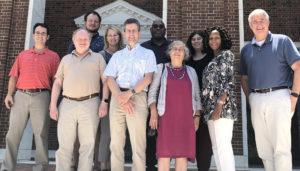
Back Row: Adam Bates (University of Illinois at Urbana-Champaign), Denise Anthony (University of Michigan), Kevin Kornegay (Morgan State University), Michelle Mazurek (University of Maryland)
Ten faculty experts will manage teams conducting research related to security, privacy, sociology, human-computer interface design, ubiquitous and mobile computing, embedded systems, wireless networks, and radio engineering. An advisory council composed of experts from government, industry and academia will provide guidance on current practice and future challenges.
“By working with a diverse group of leaders in the technology sector, we hope to influence the future of smart-home devices from design to disposal,” said David Kotz, a professor of computer science at Dartmouth and the lead principal investigator for the project. “This is a win for consumers and for companies who want to make more privacy-respectful choices but feel they cannot do so while remaining competitive in the current market.”
The research team will develop prototypes that integrate new insights emerging from the project while allowing them to seek feedback from experts and everyday consumers. The group will also develop programs for students, junior researchers, and community members with the aim of encouraging more people from underrepresented groups to pursue careers in computing.
The research program will begin on October 1, 2020. For more information and to follow SPLICE’s progress, individuals can access the project blog at splice-project.org.
About Morgan
Morgan State University, founded in 1867, is a Carnegie-classified doctoral research institution offering more than 126 academic programs leading to degrees from the baccalaureate to the doctorate. As Maryland’s Preeminent Public Urban Research University, Morgan serves a multiethnic and multiracial student body and seeks to ensure that the doors of higher education are opened as wide as possible to as many as possible. For more information about Morgan State University, visit www.morgan.edu.
MEDIA CONTACT(S):
Larry Jones or Dell Jackson, University PR
(443) 885-3022
 Morgan State University Newsroom Morgan State University
Morgan State University Newsroom Morgan State University
